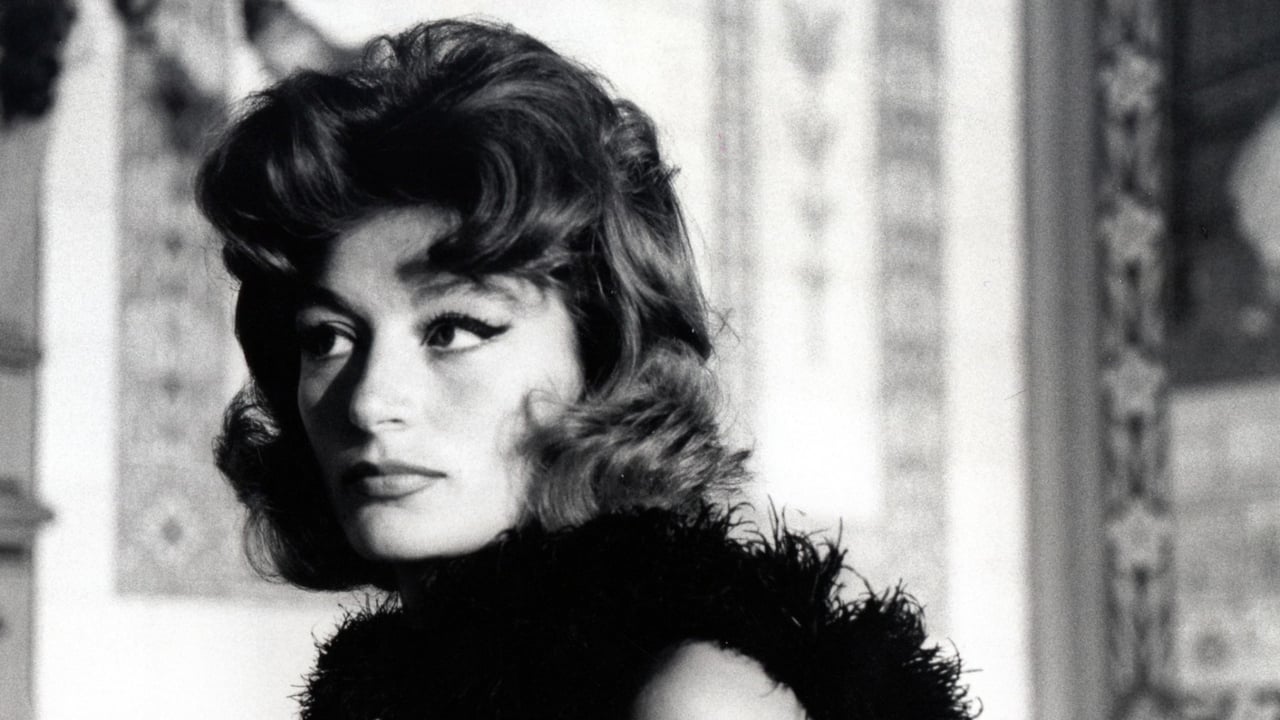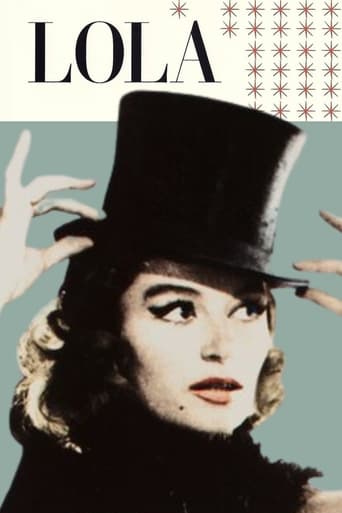

Jacques Demy's effervescent romance is one of the best and most enduring examples of the stylistic explosion since called the French New Wave, but compared to Resnais' often-tortured exposition and Godard's turgid socio-political cul-de-sacs this playful look at the mysteries of first love is alive with an almost irresistible vitality. Demy pursues with tongue-in-cheek determination the idea that life can be a series of happy accidents, weaving several interlocked plot threads into a delicate web of chance and coincidence to illustrate the casual symmetry of life and love. At the heart of the film is a young cabaret dancer waiting (against reason) for her American sailor to return, whose sometimes sad, sometimes comic story is oddly echoed in the lives of everyone around her. It's as if the world were an endless progression of dancers and sailors, destined to mingle and mix in a never-ending attempt to rekindle that first, unforgettable spark of passion.
... View MoreHaving heard and read little but lavish praise for this early Jacques Demy entry it was perhaps inevitable that, seeing it for the first time some 43 years after its initial release I would be disappointed. By pure coincidence I had seen exactly one week earlier the now 72 year old Anouk Aimee playing Yvan Attal's mother in a current crowd-pleaser in Paris and it maybe this first-hand and arguably cruel knowledge of how Time deals with the most beautiful of actresses coloured my impressions. There is little radically wrong in this story of missed opportunities and ships-that-pass-in-the-night encounters augmented by a romantic score by Michel Legrand in which he auditions one of the main themes of Les Parapluies de Cherbourg (in the English translation the theme became 'Watch What Happens') which lay some three years in the future. All hands turn in decent enough performances from Anouk (as she was known in her early British films like 'The Golden Salamander') herself through Marc Michel's Roland Cassard, Alan Scott's Frankie and especially Elina Labourdette's Madame Desnoyers. Demy has opted for a sort of uncompleted La Ronde style (the cinematic equivalent of theatre-in-the-half-round) in which characters meet or else just MISS meeting, separate and meet someone else who will, sooner or later, explore the six degrees of separation theory. It's more than possible that had I seen this on its release I would be taking at least one turn around the block on the Hosanna bandwagon but as it stands I rate it a respectable 7/10
... View MoreBy all means, let's give Raoul Coutard's stunning natural- light b&w scope photography a 10; the word "sublime" is not out of place for his work here. And the music of Legrand deserves a 7, perhaps. But Demy's script and direction?--not more than a 3. Godard combined his own talents with those of Coutard and Legrand to create a masterpiece, VIVRE SA VIE; but without Coutard and Legrand, Demy's film would be nothing. I recalled this as a striking visual treat from a 1964 viewing, but otherwise drew a blank. Now, seeing it again, it's easy to understand why. What else is there to remember? Demy's characters are colorless and shallow. The story is aimless and lazily structured. There's none of the bite of Ophuls (to whom the film is dedicated). And the slow motion sequence is derivative and embarrassing.One of the most annoying aspects of the film is the apparent total post-recorded dialogue. The dialogue has the same flat studio tonality whether the characters are indoors or outdoors, and there's an almost total absence of sound other than dialogue and music (probably an intentional effect, but not a successful one).If this is an "escapist" film, it fails. True escapist fare must create a world and characters more beguiling than our own; but I couldn't wait to get back to the real world.
... View MoreThis film, which sets up many of the story lines and themes that are taken up in "The Umbrellas of Cherbourg," is as charming and seductive as the latter, even in black and white and without the musical numbers. In fact, the black and white is quite spectacular--the camera loves Anouk Aimée in particular--and the film seems as if it is going to turn into a musical at almost every moment. While watching the film, one thrills to see the first statement of director Demy's beautiful and poignant cinematic universe. "Lola" is at once a splendid homage to the classic Hollywood film, and at the same time, through its expression of complex, mostly tragic themes, and quotidian--if not ugly--realities, something much more intriguing than a conventional film romance. Yet, such harshness is tempered, even transformed, by the dreamscape of cinema, both in what is depicted on-screen as well as through the characters' own processes of dreaming. You needn't resist the temptation to call it sublime.
... View More